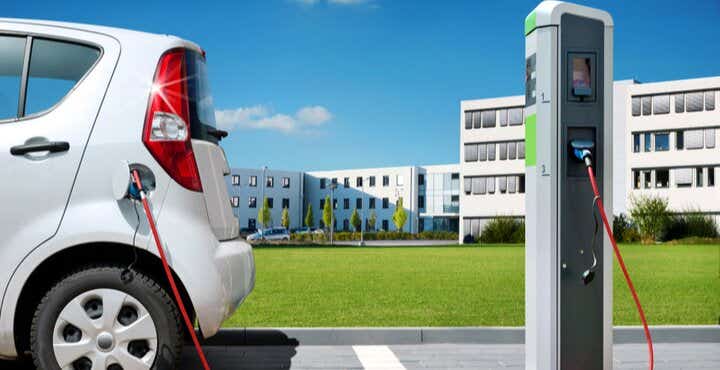Get a car insurance quote
See a range of car insurance quotes in just a few minutes when you compare with Uswitch
How much does electric car insurance cost?
As the technology is relatively new and insurers do not have a long record of claims, insuring an EV car can be expensive. However, you can choose a cheaper model to insure if you want to save money.
In 2021, online car marketplace Heycar conducted research into the cost of car insurance premiums and found that EVs are cheaper to insure than like-for-like conventional models. In the case of a Nissan Leaf, for example, owners paid £156 less on average than a similar spec Ford Fiesta, so the cost of insurance shouldn’t be a barrier.
But since then things have changed - sales of plug-in vehicles in the UK have reached all-time highs, with 327,000 registered in 2021 alone. This constituted a 77% rise compared to 2020, according to the Department for Transport.
Is electric car insurance different to petrol and diesel car insurance?
Electric car insurance works in the same way as car insurance for traditional petrol or diesel cars. You can choose the level of cover and any extras you want to include.
The price is based on levels of risk, as with traditional car insurance, and also the value of your electric car.
What levels of insurance cover are available to electric car owners?
As with traditional insurance, you can choose from three levels of cover for electric car insurance. These are third-party only, third-party fire and theft, or a fully comprehensive policy.
It's worth comparing the price of all three as it's usually the case that fully comprehensive cover, which is the highest level available, is the cheapest option.
What insurance groups do electric cars fall under?
Electric cars are placed into insurance groups, from 1 to 50, in the same way as non-electric cars are. The group will depend on the type of car and its value.
More expensive cars, or those that are less common, tend to be in higher-up groups and cost more to insure. Therefore choosing an electric car in a lower-down group should lower your insurance costs.
Are electric cars more expensive to insure?
Historically electric cars were more expensive to insure because they were more expensive to buy. That meant insurers would have to pay out more for repairs or to replace an electric car, when compared to a traditional car.
However, as they become more popular this is changing and electric car insurance costs are coming down. This is also likely to continue as sales of new petrol and diesel cars will be banned by the government from 2030.
Which insurance providers offer electric car insurance?
Most insurers offer electric car insurance but there are some specialist providers. Comparing prices is the best way to find an affordable policy. As EVs become more common more insurers will start offering policies, which in turn should also bring down prices.
What are the benefits of getting an electric car?
There are many benefits to getting an electric car including the following:
Reduce your carbon footprint: if you choose an EV it has no emissions
Cheaper to drive: you will typically pay cheaper costs for running an electric vehicle, via a charging point, than if you pay for petrol or diesel
No congestion charges: you won't pay a congestion or clean air tax in some UK cities
Free parking: some councils offer free parking to EV drivers
No road tax until 2025: EV drivers don't pay any road tax, but they will have to from April 2025, apart from new zero emission cars that were registered on or after 1 April 2025.
FAQs
Does electric car insurance cover cables and batteries?
Most electric car insurance policies do cover the car along with parts including the cables and batteries. Just make sure you check the small print so you know what's included with your policy.
Can I get a government grant to buy an electric vehicle?
You may be able to get a government grant to buy an electric vehicle but it will depend on the type of vehicle you drive. You can find out more on the government website.
Will I be covered for breakdown with my electric car?
You will be covered for breakdown with your electric car if you have breakdown cover. It can be bought alongside your electric car insurance or as a separate add-on.
What is electric vehicle insurance excess?
The electric vehicle insurance excess is the amount of money you will need to pay if you make an insurance claim.
Can I add additional drivers to an electric car insurance policy?
Yes, just like with non electric cars you can add additional drivers to a policy. There is usually a small cost and a limit on the number of drivers you can add.




